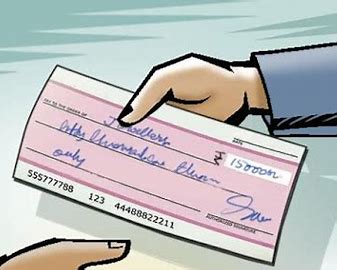
Security Cheques under the Negotiable Instruments Act, 1881
Introduction:
The Negotiable Instruments Act, of 1881, is an Indian legislation that regulates the law relating to negotiable instruments like promissory notes, bills of exchange, and cheques. Its primary aim is to facilitate the transfer of these instruments and ensure their smooth operation in commercial transactions. The Act provides a framework for creating, transferring, and paying these instruments, which are crucial for trade and commerce as they offer a secure and efficient payment method. It ensures that the rights and obligations of the parties involved are clear and enforceable.
Legal Provisions:
- Definitions: Promissory Note (Section 4): A written promise to pay a specified amount.
- Bill of Exchange (Section 5): A written order directing someone to pay a specified amount.
- Cheque (Section 6): A bill of exchange drawn on a bank, payable on demand.
- Negotiation and Endorsement: Negotiation (Section 14): Transferring an instrument to another person.
- Endorsement (Section 15): Signing the instrument to transfer it.
Punishment: Fraudulent Endorsement (Section 85A): Imprisonment up to one year, or a fine, or both.
- Holder and Holder in Due Course: Holder (Section 8): Person entitled to possession and payment.
- Holder in Due Course (Section 9): A person who acquires the instrument for value without any defect in title.
- Dishonour of Cheque (Sections 138-142): Penalizes dishonor due to insufficient funds.
Punishment: Dishonour of Cheque (Section 138): Imprisonment up to two years, or a fine up to twice the cheque amount, or both.
Punishment:
- Interim Compensation (Section 143A): The court can order payment of up to 20% of the cheque amount as interim compensation.
- Offenses by Companies (Section 141): Company officials responsible for business conduct can be punished for offenses under Section 138.
Detailed Examination of Security Cheques:
Under the Negotiable Instruments Act, of 1881, a security cheque is a cheque given by a drawer to the payee as a form of security for a loan or an obligation. It is not meant for immediate payment but serves as a guarantee that the drawer will fulfill the underlying obligation.
Key Points about Security Cheques:
- Purpose: A security cheque is a document issued to guarantee the payment of future obligations, such as loans or advances.
- Nature: A security cheque is held by the payee and is only deposited if the drawer defaults on the underlying agreement or obligation.
- Legal Status: The Negotiable Instruments Act allows the payee to take legal action against the drawer if a security cheque is dishonoured.
Legal Framework and Provisions:
- Section 138-Dishonour of Cheque for Insufficiency of Funds: Section 138 applies to security cheques dishonoured due to insufficient funds or exceeding bank arrangements, imposing penalties for cheque dishonour.
- Section 139-Presumption in Favor of Holder: A cheque, including a security cheque, is issued for debt or liability discharge, with the drawer's burden of proof to rebut this presumption.
- Section 140-Defence Not Available: The drawer cannot claim they had no reason to believe the cheque would be dishonored when issued, which applies to security cheques as well.
- Section 141-Offences by Companies: A company's responsible party is liable for an offense committed by its employees unless they can prove the offense was replicas relojes unintentional or they exercised due diligence.
Case Laws:
- M/s Meters and Instruments Private Limited v. Kanchan Mehta (2018): Here, the Supreme Court discussed the interpretation of the phrase "shall be deemed to have committed an offense" in Section 138, affirming the strict liability on the drawer of the cheque.
- Nishant Aggarwal v. Kailash Kumar Sharma (2021): This recent case gave clarity on whether a complaint under Section 138 can be filed against the legal heirs of the deceased drawer of a cheque, highlighting the legal continuity of obligations even after death.
- HDFC Bank Ltd. v. Rupali S. Wadhwa (2018): This case provided insights into the interpretation of Section 138 of the Negotiable Instruments Act concerning the dishonor of security cheques and the corresponding legal remedies available to the payee.
- Sarveshwar Foods Ltd. v. Punjab National Bank (2021): This case highlighted the applicability of Section 138 in cases involving dishonor of cheques issued as security against loans, addressing legal principles of liability and enforcement.
CONCLUSION
The Negotiable Instruments Act, of 1881, forms the cornerstone of regulating negotiable instruments such as promissory notes, bills of exchange, and cheques in India. It ensures the smooth transfer and payment of these instruments, crucial for commercial transactions, by defining key terms and legal principles.
Security cheques, a subset of cheques used as guarantees for loans or other obligations, play a pivotal role. They are issued to assure the payee of future payments but are not meant for immediate encashment unless the drawer defaults on their commitment. The Act provides clear provisions under Sections 138 to 142 for penalizing the dishonor of cheques, including security cheques, due to insufficient funds or other specified reasons.
Recent case laws, such as M/s Meters and Instruments Private Limited v. Kanchan Mehta and Sarveshwar Foods Ltd. v. Punjab National Bank, underscore the Act's application and interpretation in disputes involving security cheques. These cases reaffirm the strict liability of drawers and clarify legal obligations, including the continuity of liability even beyond the drawer's lifetime.
Authored by: GARIMA SEHRAWAT
Ideal Institute of Technology and Management and School of Law
Reference:
- LexisNexis India
- Westlaw India
- Manupatra
- SCC Online
- NALSAR, NLSIU
- Indian Legal Information Institute
- Supreme Court of India
rolex replica
